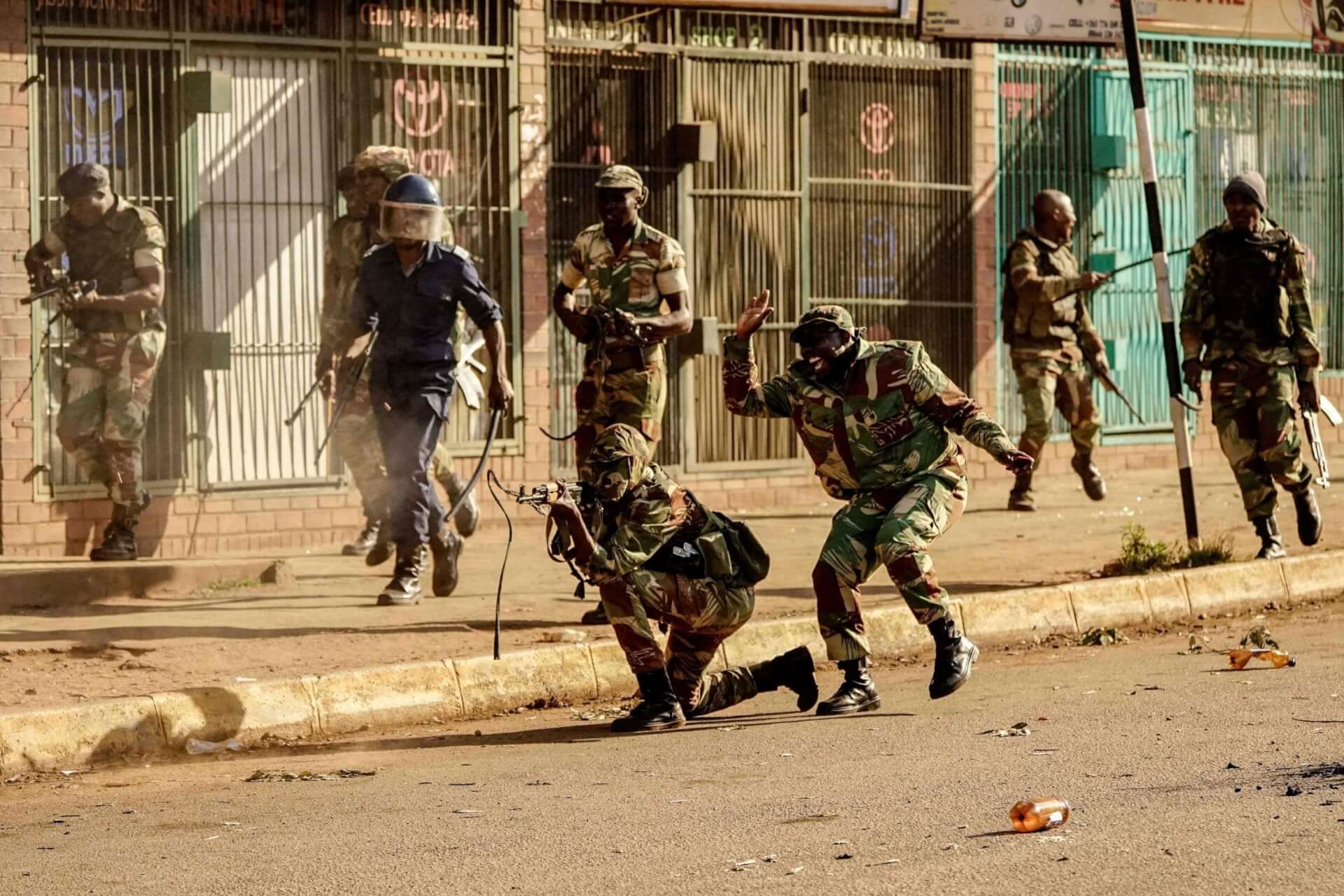The United States (US) imposed sanctions on Zimbabwe’s State Security minister and its ambassador to Tanzania for their role in the killing and abduction of protestors.
Secretary of State Mike Pompeo called on Zimbabwe to “immediately end state-sponsored violence including against peaceful protestors” and investigate human rights abuses. His sentiments were echoed by Deputy Treasury Secretary Justin Muzinich, who said that the Trump administration will hold Zimbabwean ‘elites’ “accountable […] for their repressive and violent rule”.
State Security minister Owen Ncube is a close ally of President Emmerson Mnangagwa and stands accused of ordering the abduction and torture of government critics during protests in 2019.
Zimbabwean Ambassador to Tanzania Anselem Sanyatwe, a former commander of the presidential guard, is alleged to have deployed soldiers to attack unarmed protestors, resulting in the death of six civilians following the 2018 election.
The US State Department said, “These actions follow Sanyatwe and Ncube's designations for gross violations of human rights by the State Department in September and October 2019, which blocked Ncube and Sanyatwe from entering the United States.”
Aside from a travel ban, their assets were also frozen, meaning that US citizens cannot engage in business with them.
Zimbawe’s Foreign Affairs Minister Sibusiso Moyo opposed the US’ decision saying, “The decision can only further erode trust and confidence in the relationship between Zimbabwe and the United States at a time when, more than ever, confidence building measures are required so as to sustain the ongoing process of re-engagement”.
Moyo added that the sanctions against “two very senior Zimbabwean nationals” are unfair. Last week, the US renewed sanctions against Zimbabwe for human rights violations by security forces and not implementing adequate political reforms. The European Union, Australia, Canada, and New Zealand have imposed sanctions on Zimbabwe for roughly 20 years over human rights violations and electoral fraud.
After dictator Robert Mugabe was ousted in 2017, after ruling from 1980-2017, it was hoped that President Mnangagwa would usher in a new era in Zimbabwean politics. However, it appears that the brutality that characterized Mugabe’s regime is still very much present under the new leadership.
Image Source: Evening Standard
US Imposes Sanctions on Zimbabwean Elites for Their Role in 'Repressive and Violent Rule'
March 13, 2020

